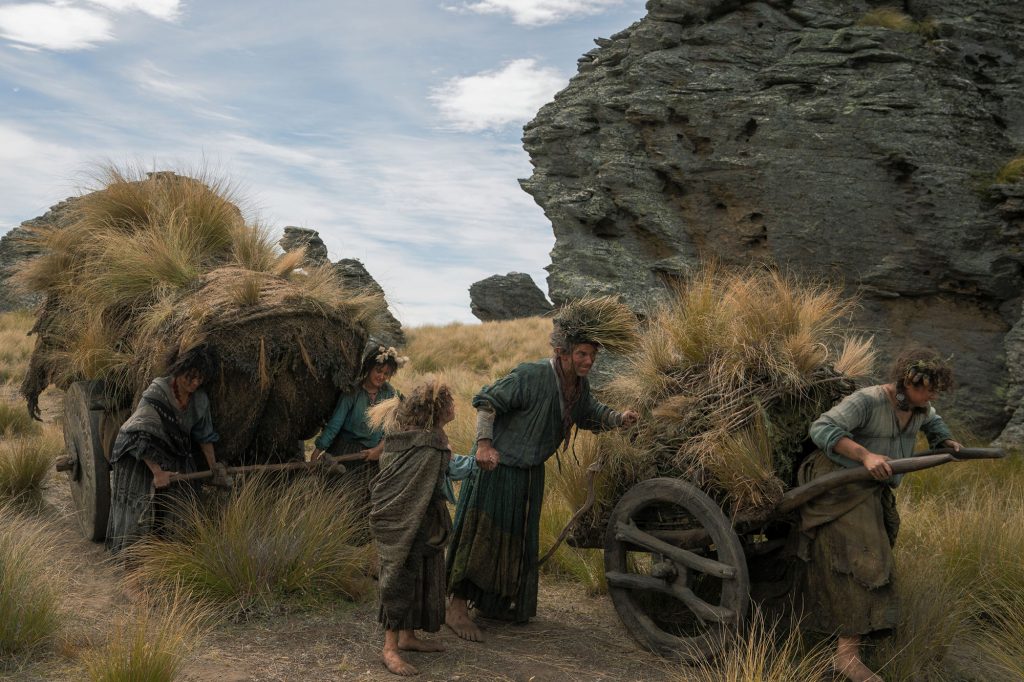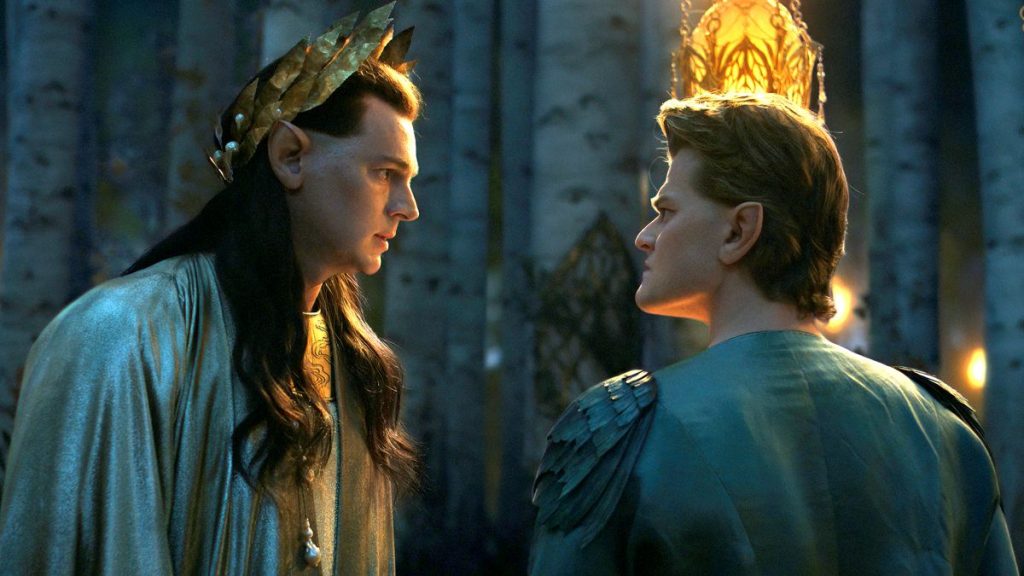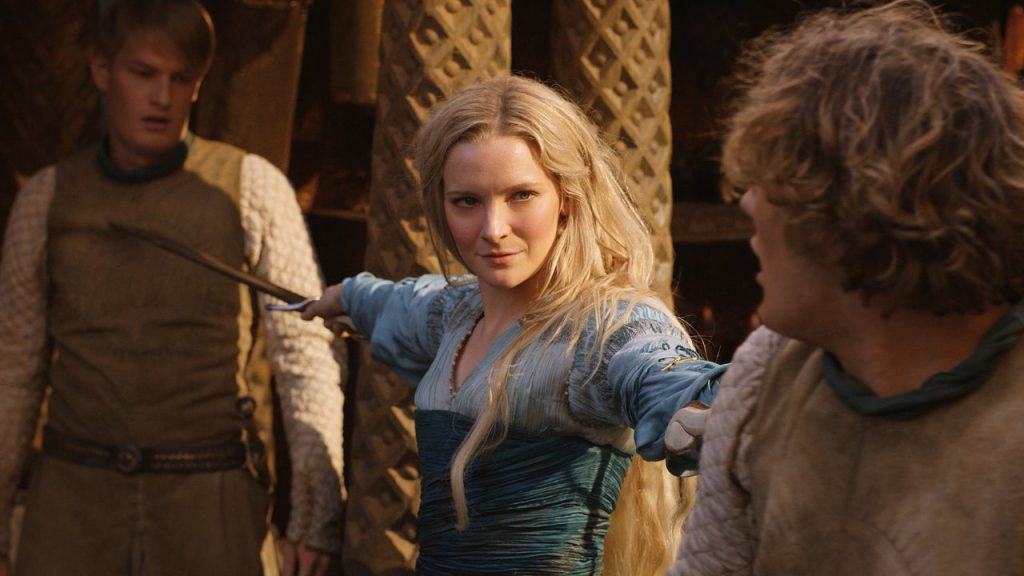After five episodes, it has become clear that Rings of Power has no intention to slow down—and that’s an issue. Many alliances are forged and broken as the plot moves forward, but everything happens so quickly that the characters are left behind. As we hop from place to place, it becomes clear that the show’s large scale only amplifies the flat and mediocre writing that offers a mere parody of what the show could have been if it only learned to slow down.
The Harfoots finally return, but their brief presence only cements their status as one of the weakest links of the show. The Harfoots are some of the most endearing characters. Kavenagh’s Nori particularly stands out, and her interactions with the Stranger—whose identity continues to elude audiences—are touching and offer much-needed relief from the show’s overreliance on action and special effects. But this is not enough to redeem Harfoots for me. Don’t get me wrong, I have a fondness for the little guy facing this big dangerous world, as many Tolkien fans undoubtedly do, but Harfoots don’t belong in the Second Age (their presence doesn’t inherently contradict canon, but the Second Age focuses on other players, mainly Elves and Men). In an interview with Vanity Fair, showrunners Payne and McKay argued, “Does it feel like Middle-earth if you don’t have hobbits or something like hobbits in it?” I partly agree with them, but the show is already crowded as it is.I really do feel it would have been best to leave the Harfoots to the margins of Tolkien’s notes on the Second Age.

Indeed, “Partings” is the show’s longest episode yet, but everything feels incredibly rushed. In the Southlands, a touching bonding moment between Arondir and Theo is almost instantly spoiled when Theo suddenly (read: out of nowhere) decides to show Arondir the sword hilt he has been hiding since the second episode. This then leads to the unveiling of a statue of Sauron that tells us very little other than perhaps Elves don’t have such great eyesight after all if this was right there in their tower all this time.
Surprisingly—or maybe not so surprisingly—this isn’t even the biggest revelation of the episode. In Lindon, Elrond and Gil-Galad recite The Song of the Roots of Hithaeglir—an odd mithril tree myth that not only directly contradicts Tolkien’s canon (the lost Silmaril? Uh?) but it makes absolutely no sense. The idea that the Elves need mithril to survive is laughable; their immortality is not connected to material objects in any way. And why is it so important that mithril might hold the light of the Silmaril—the light of the Trees? Elves don’t suffer from light deficiency, and it’s certainly not a stone, no matter how precious, that can save them.

Already, this review feels like it has tackled too many things, yet nothing has been said of Númenor. And boy, there is a lot to say here. Galadriel continues to suffer most from the show’s blatantly bad writing. In a scene that feels straight out of a bad fanfiction, she shows off her swordsmanship and wins in a fight against five inexperienced sailors. Is this the best way the writers found to show “female strength”? I have made my feelings about Galadriel clear already, but this is just one of many examples that demonstrate the show’s juvenile writing.
In almost no time, Galadriel convinces the Númenorians to aid her by sending five ships to Middle-earth, where she will crown the rightful king of the Southlands, Halbrand. Since the beginning, Halbrand has made it clear that he has no desire to be king, yet he changes his mind in a matter of seconds. The worst part is, the pivotal scene where he changes his mind does not exist! The show completely skips over this crucial character moment. Sure, the episode does have a few good character moments, like the discussion between Phârazon and his son, Kemen, but overall, the show continues to prove that the writers have no idea how to write compelling characters, let alone a narrative that sustains itself.

I have had my reservations about the show since the first episode (and months before that, in truth) but I still held hope to be amazed by the show. Sometimes the show does amaze me, but it’s mostly the beautiful New Zealand scenery, and of course, that is not enough to save this mess. With only three episodes left, I seriously doubt that the show can offer a satisfying conclusion that will leave me excited for season two. But Tolkien does teach us to always have hope, so I guess, I will try my best not to despair.
